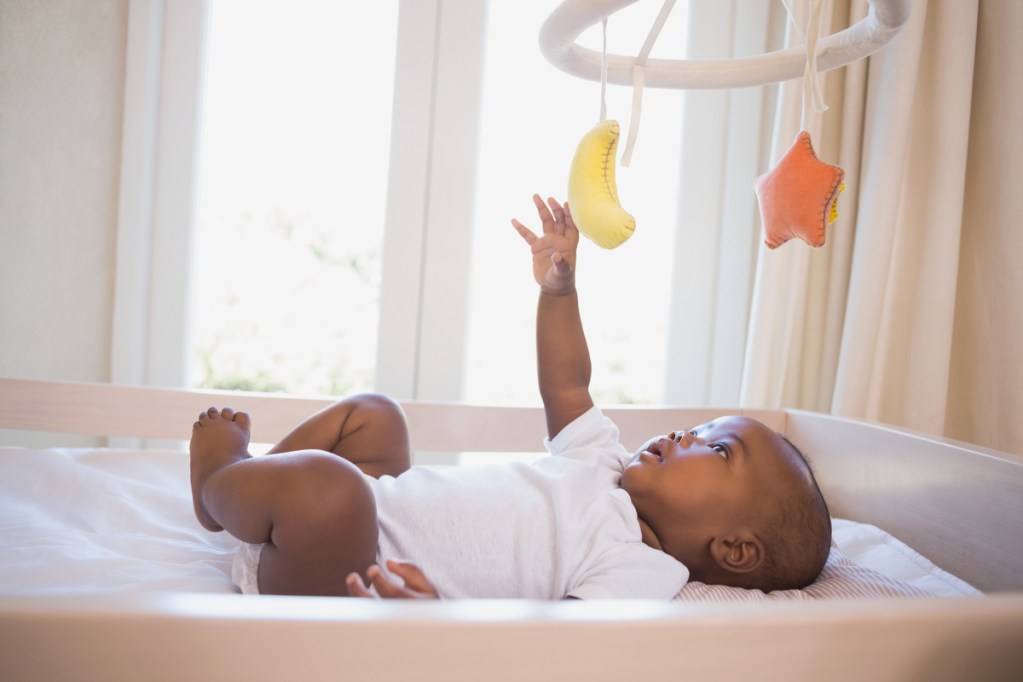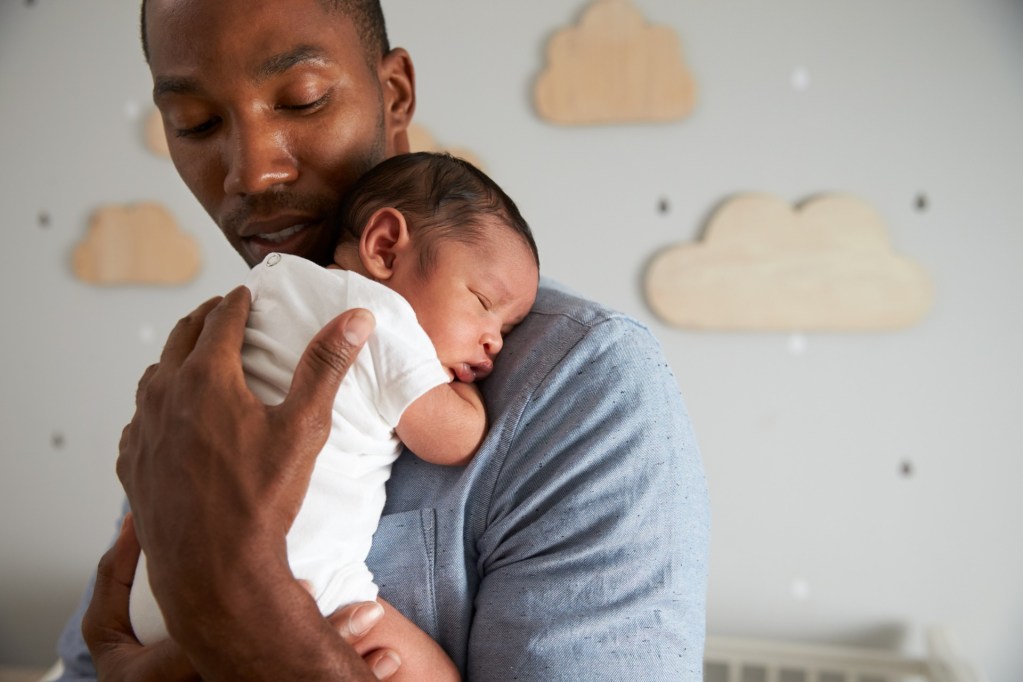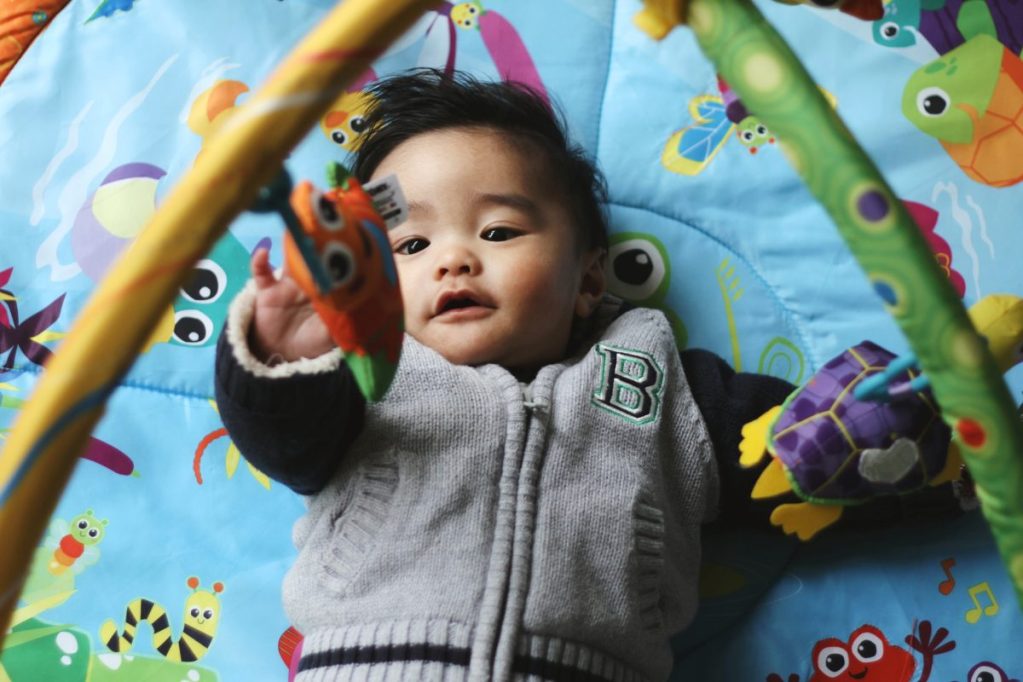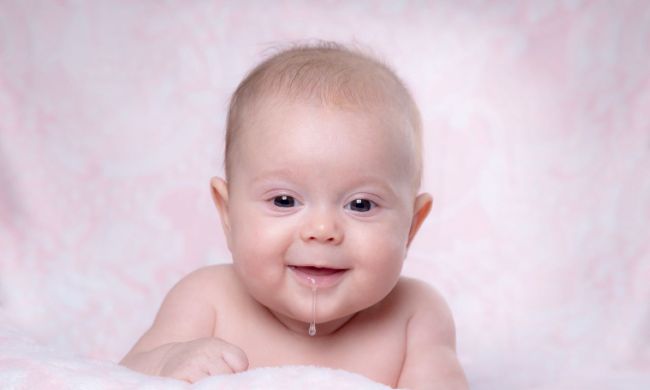From a first giggle to a first blowout — hey, it will happen, a lot — not all milestones will be cute, but they are important markers. During the first couple of months, it might seem all your baby does is eat, sleep, need their diapers changed, and cry because they want one of those other things, but then the 3-month-old milestones kick in and things get more amusing. See where your baby should be by month 3, and know what new, adorable adventures there are to look forward to.

Movement milestones
Your 3-month-old will love to move
- Their legs and arms will kick and stretch when on their back or stomach
- They will grab at toys dangled in front of them
- They’ll discover their pudgy hands will chew on them
- They’ll use those legs to push off surfaces
One of the best parts of this time is how interactive your baby becomes. Playtime is more or a two-way process, as baby has a wider range of facial expressions to clue you into how they feel. Your little one will follow objects better and be an active participant in playtime, rather than you just trying to entertain a ball of cuteness.
Tummy time
Most babies start tummy time sessions around a month old, but by 3 months old, they should be a pro at it. From being able to push their body up when on their stomach to perfecting the rollover, your baby should be able to support their head and upper body during tummy time.

Personality milestones
The noises kick in
- Babble starts
- Genuine smiles happen
- They’ll look for the source of sounds
- They start to love the sound of your voice and will smile when they hear it
- They will start mimicking noises
- They begin to make eye contact
The introduction of adorable noises and smiles will melt your heart. Your 3-month-old will start to find their voice while having sounds they enjoy light up their face. From those first smiles to magical baby babble, the precious noises will fill your day.

Eating and sleeping milestones
How often baby eats
- A breastfed baby will nurse around every 2 to 4 hours
- Formula-fed babies will eat around 6 to 8 times a day
Your babe should be able to go a few hours between feedings now.
Sleeping at night gets better
- They’ll sleep around 14 to 16 hours a day
- They will take up to three naps a day, just over an hour each
The newborn zombie walk new parents do will start to wear off a little. A 3-month-old will sleep most of the day, with a good portion of it overnight, which is good news for parents. There should also be a longer stretch between those nightly feedings.
Sticking to a sleep schedule
By 3 months of age, you should have a sleep schedule established. It should be the same time every night for bed, the same time for naps, and then everyone should get more sleep than they’ve had since baby came home.

Other milestones at 3 months old
Your baby has favorites
Around this time, you might notice your baby has favorite things. This could be a person, a toy, a room, or a noise, like music. Not only favorites, but by 3 months, your child will be able to recognize people or places they see often.
Your baby loves hugs
While skin-to-skin time is still something baby and parent should be doing, your little one will grow fond of hugs. While that is good news for everyone who loves a good baby squeeze, it’s also beneficial for the baby, as it helps with cognitive development.

Milestones a 3-month-old won’t hit yet
- Not quite ready for solid food
- No water or other liquids besides breastmilk or formula
- Won’t sit up alone
Parents are always excited to watch their baby try food for the first time, but it’s a tad too early for solids. The recommended age is 4 to 6 months old, so don’t start making baby purees just yet. It’s also too soon to introduce any other liquid to your baby’s diet, and that includes water.
Your 3-month-old can’t sit up by themselves but could fake it if propped up with support. Playtime will still have to happen on the floor or on your lap.

Not all babies hit every milestone by 3 months
3-month-old milestones misses
- No smiles for people
- Doesn’t follow objects with eyes
- No eye contact with people
- Isn’t holding onto toys/other objects
- Hasn’t discovered their hands
- No reaction to loud noises
- Legs don’t push off of surfaces
Every child is different, and not every baby will hit every milestone exactly at each month. If your bundle isn’t hitting all 3-month-old milestones, don’t panic. Keep your eye on their overall development, and if you notice these aren’t being met or have concerns about your child’s growth, let your pediatrician know.
As your child gets more vocal and active, opportunities to bond by more than just staring at each other are available. Enjoy this little sweet spot before you have a crawler, and everything becomes a game to catch baby.




